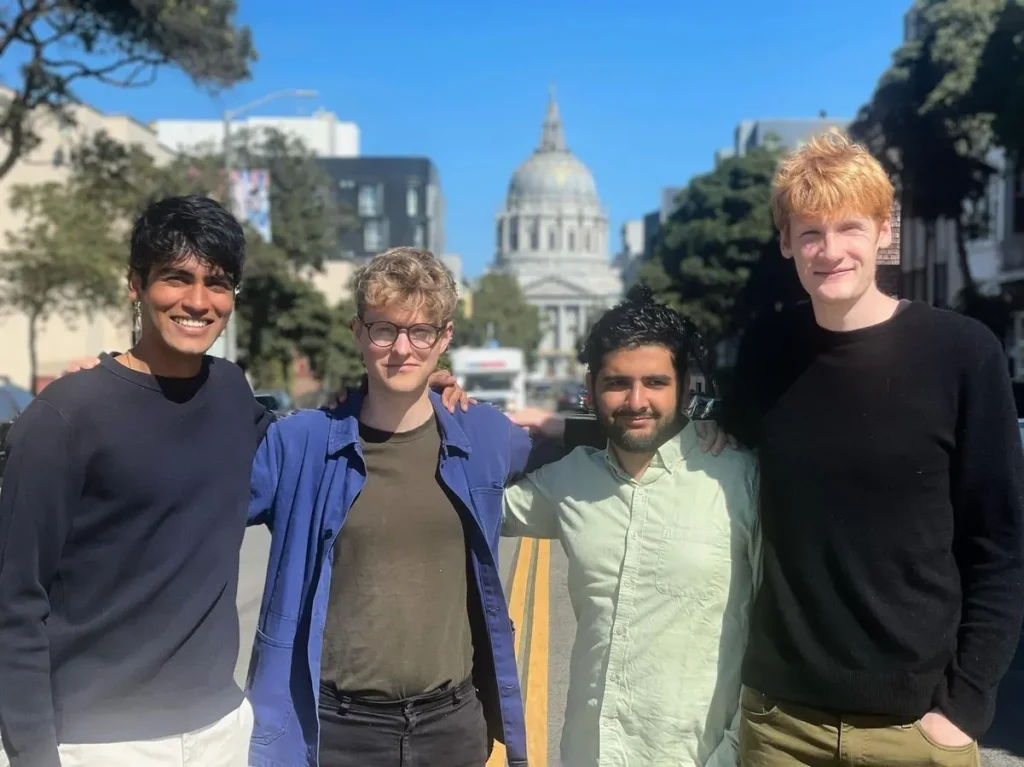Cursor Cofounders Join Billionaire Ranks Following Massive Funding Round
In a remarkable testament to the explosive growth of artificial intelligence tools in software development, the four cofounders of Cursor have joined the billionaire ranks after their company, Anysphere, secured a staggering $2.3 billion in fresh funding. This latest investment round values the startup at an impressive $29.3 billion, transforming the young founders’ lives just two years after launching their business. Forbes estimates that Michael Truell, Aman Sanger, Sualeh Asif, and Arvid Lunnemark each hold approximately 4.5% stakes in the company, with their individual shares worth at least $1.3 billion. What makes this achievement particularly remarkable is that all four founders are under 30 years old, having met as students at MIT before embarking on their entrepreneurial journey.
The company’s AI code editing software, Cursor, has rapidly become an indispensable tool for software developers worldwide. It now serves millions of users, including teams at tech giants like Nvidia, Adobe, Uber, Shopify, and PayPal. Anysphere recently announced it has surpassed $1 billion in annualized revenue, an extraordinary milestone for such a young company. The startup’s meteoric rise is further evidenced by its growth from just $1 million in annual recurring revenue in 2023 to $100 million in approximately 12 months, making it one of the fastest-growing startups in history. This phenomenal expansion has attracted investments totaling $3.38 billion from prestigious venture capital firms including Accel, Thrive Capital, Coatue, Andreessen Horowitz, and DST Global.
Behind this success story are four young entrepreneurs with exceptional technical backgrounds. Michael Truell, the 25-year-old CEO, began coding at an early age and developed Halite, a programming game that attracted thousands of players, while still in high school. His talents earned him internships at drug discovery company Octant and Google, where he trained models for news recommendations. Truell’s exceptional coding abilities caught the attention of early Facebook investor Ali Partovi, leading to his selection as a Neo scholar—a startup bootcamp that identifies exceptional talent in college, provides mentorship, connects them with Silicon Valley leaders, and invests in their ventures. His cofounder Aman Sanger, also 25, was likewise a Neo scholar. Sualeh Asif, 25, originally from Karachi, Pakistan, competed in the International Math Olympiad, as did the fourth cofounder, Arvid Lunnemark, 26, who recently departed Anysphere to launch Integrous Research, a startup focused on developing systems for “safer AI.”
What makes Cursor stand out in the competitive AI landscape is its versatility and power. The tool allows engineers to leverage AI models from industry leaders like OpenAI, Anthropic, Google, and xAI to write and edit substantial portions of code while also identifying and fixing bugs. In October 2025, Cursor expanded its capabilities by launching its own model called Composer, specifically trained to generate code faster and automatically perform tasks like editing files and codebases. This strategic move could help reduce the company’s dependence on third-party models, which are notoriously expensive to use at scale. The decision to develop proprietary models demonstrates the founders’ foresight in building sustainable competitive advantages in the rapidly evolving AI landscape.
Interestingly, the Cursor team’s path to success wasn’t straightforward. The cofounders initially attempted to build AI models for computer-aided design programs used by mechanical engineers—a project that ultimately failed due to their lack of expertise in that specific domain. This setback prompted them to pivot toward their area of strength: software engineering. They leveraged their deep understanding of programming to create what Truell described to Forbes as a “Google docs for programmers.” This pivot proved to be the turning point in their entrepreneurial journey, underscoring the importance of aligning business ventures with founders’ core competencies and the market’s readiness for innovation in specific sectors.
The remarkable success of Anysphere reflects a broader trend in the AI startup ecosystem, where companies are reaching extraordinary valuations at unprecedented speeds. This phenomenon is creating a new wave of young billionaires in the tech world. Just weeks before Anysphere’s funding announcement, the 22-year-old founders of AI recruiting startup Mercor became the world’s youngest billionaires after their company reached a $10 billion valuation. As AI continues to transform industries and create enormous value, we’re witnessing the emergence of a new generation of tech leaders who are building fortune-creating companies while still in their twenties. These young entrepreneurs are redefining what’s possible in terms of wealth creation and technological impact, with Anysphere’s founders serving as prime examples of how innovative AI applications can rapidly scale to transform entire industries.


